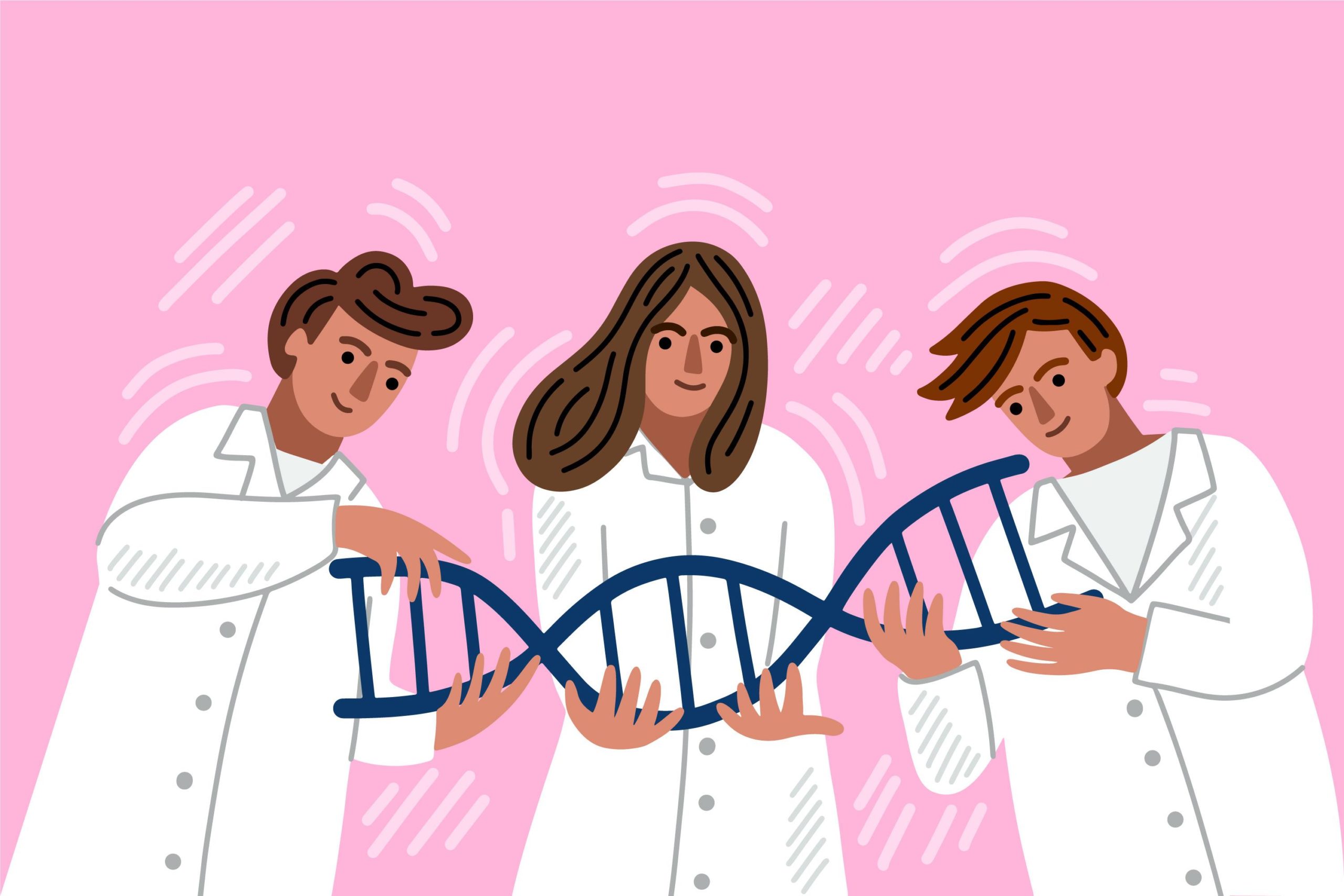Original article (in Serbian) was published on 16/01/2023
The internet web portal N1 published a text entitled Traits that children exclusively inherit from their fathers, in which several incorrect or exaggerated claims are made about the genetic inheritance of traits. The text was shared from Index.hr which translated it from the website “Family education”.
On domestic web portals, the original article entitled “Three traits that babies inherit from their fathers” was expanded with the information that children inherit intelligence from their mothers, which is incorrect (1, 2). This claim is supported by the wrong information that the X chromosome (which is inherited from the mother) contains “genes for intelligence”. There is no specific gene for intelligence: there are many segments of the genetic record that contribute to faster linking of facts and more efficient learning from previous experience, none of which can be considered crucial. In addition, intelligence, like many other traits, is defined by various factors of the external environment.
Child’s height
The first trait that the web portals claim is inherited from the father is height, and the wording is somewhat more careful than the previous one about intelligence, so it is stated that “dad’s genes play a greater role in determining height”. This segment of the article is deprived of a part of the original text in which the author explains that IGF2 (insulin-like growth factor 2) is responsible for the growth of the child, which is inherited from the father, while IGF2R is inherited from the mother, and leads to growth disorder. Based on these data, it is wrong to conclude that the child inherits height from the father. IGF2 is indeed inherited from the father and promotes tissue growth, but for its proper functioning, IGF2R, which is inherited from the mother, is necessary, because, without their mutual suppression, IGF2 would lead to uncontrolled tissue swelling, which would at some point result in the formation of tumours. Of course, IGF2 is not the only factor that promotes the growth of the child, and despite its positive influence on the growth and swelling of tissues, it cannot be considered a key factor for achieving the final height of the child.
Child’s gender
The allegation that the father’s genetic material is responsible for the child’s gender is true. The human genetic record consists of 23 pairs of chromosomes, of which the first 22 pairs are identical for male and female individuals. They differ only in the last, 23rd pair of chromosomes, which is called the gender pair – in girls it is XX, and in boys it is XY. The ovum (originating from the mother) is the carrier of the X chromosome, so the available genetic material is the same regardless of gender. It is the spermatozoon (originating from the father) that, during fertilization, enters the X or Y chromosome into the genetic record, and based on it, it is determined whether the conceived fetus will be male or female. It should be noted here that the given rules refer exclusively to the genetic gender of the child.
Mental illnesses
Finally, the text warns us that fathers are the ones who pass on “mutated genes that lead to mental illnesses” to children, which is a bad interpretation. A genetic tendency towards mental illness can be inherited from both parents. At the same time, the tendency to get sick does not mean that a mental illness will manifest itself. A large number of factors influence the development and functioning of the psyche, whereby the factors of the external environment greatly influence whether a mental disorder will actually manifest itself, regardless of whether the individual has a genetic predisposition to the disease or not.
Looking at the original article, we see that the translated version omits the explanation that fathers over 45 years of age have poorer sperm quality and that it is therefore more likely that their offspring will suffer from mental illnesses and disorders, while the information about frequent depression and difficulties with learning refers to children whose parents are over 45 years old (regardless of whether it is the father or the mother).
In addition to Index.hr and N1, these incorrect claims were also reported on the following web portals: Suboticke.rs, Sombor.info, City magazine, Srbija uzivo, Informer and Backapalanka.online.



